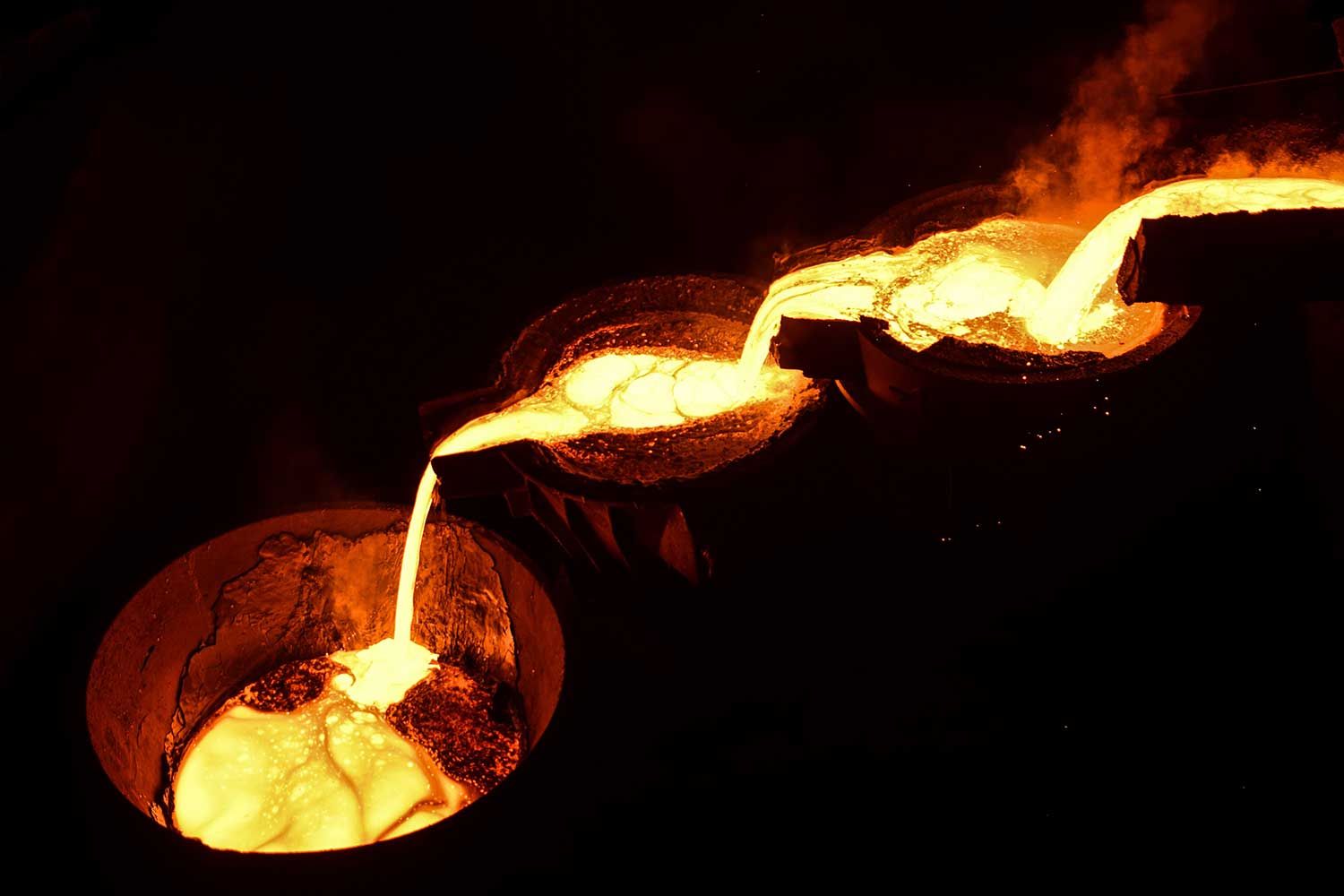
Unlocking the Potential of Industrial Ceramics: Expert Insights from Richard Verrier
Industrial ceramics play a crucial role in applications across a wide range of industries, offering unique properties that other materials simply cannot match. From high temperature and wear resistance to electrical insulation and corrosion protection, ceramics are often the best choice of material when working in extreme environments. However, understanding which ceramic materials are best suited for specific applications can be complex. In this blog, we’ve sat down with Richard Verrier, our Technical Commercial Engineer, to answer some of the most common questions that come up when choosing the right material.
Richard’s insights offer valuable guidance on material selection, key properties to consider, and how to collaborate with experts to ensure the best solution for your needs.
- What are the key properties of industrial ceramics that make them suitable for demanding applications?
Industrial ceramics are essential in applications where other materials cannot meet demanding requirements. They excel in environments that demand high temperature and electrical resistance, durability, wear resistance, and corrosion resistance. Additionally, their non-reactivity with most other materials and high compressive strength, even at elevated temperatures, further enhances their utility across diverse sectors.
- How do you work with clients to identify the specific properties (e.g., thermal, mechanical, chemical resistance) required for their applications
We collaborative closely with clients to identify critical application requirements. By understanding their end goal requirements, we can assess the relative importance of specific properties, such as thermal, mechanical or wear resistance.
Through open discussions and technical assessments, we gather detailed information about the operating environment, such as temperature ranges, wear conditions, and exposure to chemicals. This allows us to select the most suitable materials and manufacturing methods to meet those specific property requirements. Additionally, by leveraging our extensive experience and technical expertise, we ensure that the chosen materials and processes align with the client’s performance goals and cost considerations, ensuring the most efficient and effective solution.
- Are there any specific industry standards or regulations that the ceramics must comply with?
Certain industries, such as aerospace, metal processing and superalloy manufacturing, impose stringent standards on ceramic components. These standards often dictate limits on trace elements to prevent adverse reactions during processes. When this is the case, we work closely with the clients to define the key specifications, limitations and requirements. We then conduct a detailed analysis process of each material batch to ensure compliance with these exacting requirements, ensuring seamless integration into our clients’ operations.
- Material Selection
- How do you help clients select the right type of industrial ceramics (e.g., oxides, nitrides, carbides)?
The choice of ceramic type is driven by application-specific needs. Oxides like quartz, alumina, and zirconia are versatile and most commonly used as they are suitable for a wide range of applications across various industries.
Carbides and nitrides however, tend to be used in specialised sectors where oxide materials may not be suitable or where manufacturing parts in oxide materials would be much more complex and expensive. This includes applications that require extremely high temperature or thermal shock resistance, very high strength, highly complex or machined components, or a unique or complex mix of properties. Additionally, carbides and nitrides are preferred in situations where oxides may react unfavourably with the operating environment.
- What key factors influence your material selection for a specific application (e.g., wear resistance, thermal stability, etc)?
Several factors guide the material selection process, with key considerations including maximum operating temperature, thermal shock requirements (meaning the heating speed and cooling rate from the operating temperature), the operating atmosphere (such as under vacuum, in atmosphere, within gas), and the general application.
A clear understanding of the customers application and requirements is essential in determining which material is the most suitable. We also take into account factors such as higher strength, wear resistance, electrical insulation and resistance, gas tightness, and compatibility of certain materials with the customers process when evaluating the most suitable materials to be used.
- How does the design of a part influence the choice of material?
The size and complexity of a part are key factors when selecting the material. These will determine how we would manufacture the part (such as pressing vs. casting) as there are size limits to some processes. More complex parts might also require advanced machining to meet shapes or tolerances, and this can be more difficult or time consuming using some materials compared to others.
- How do you evaluate the ability of ceramics to withstand extreme conditions like high temperatures, pressure, or corrosion when helping clients choose the right material??
When helping clients choose the right material, we carefully evaluate the ability of ceramics to withstand extreme conditions like high temperatures, pressure, and corrosion. Industrial ceramics are valued for their exceptional properties, such as high-temperature resistance, electrical insulation, high compressive strength, and corrosion resistance. These properties make them ideal for applications where conventional materials, such as metals or composites, would fail. By understanding the specific challenges of a client’s application, we can select the ceramic material that offers the best performance, reliability, and longevity in demanding environments
At Anderman & Company, we understand that every project is unique. Our deep industry expertise, combined with a commitment to innovation, allows us to offer bespoke solutions that meet your specific needs. Whether you’re looking for advice on material selection, optimising the design of complex components, or ensuring regulatory compliance, we’re here to help.
If you’re facing challenges or simply want to explore how industrial ceramics can enhance your applications, get in touch with our team. We’ll work closely with you to provide the right guidance and support to ensure your success.
Contact us today to discuss your next project or request a consultation with one of our experts.